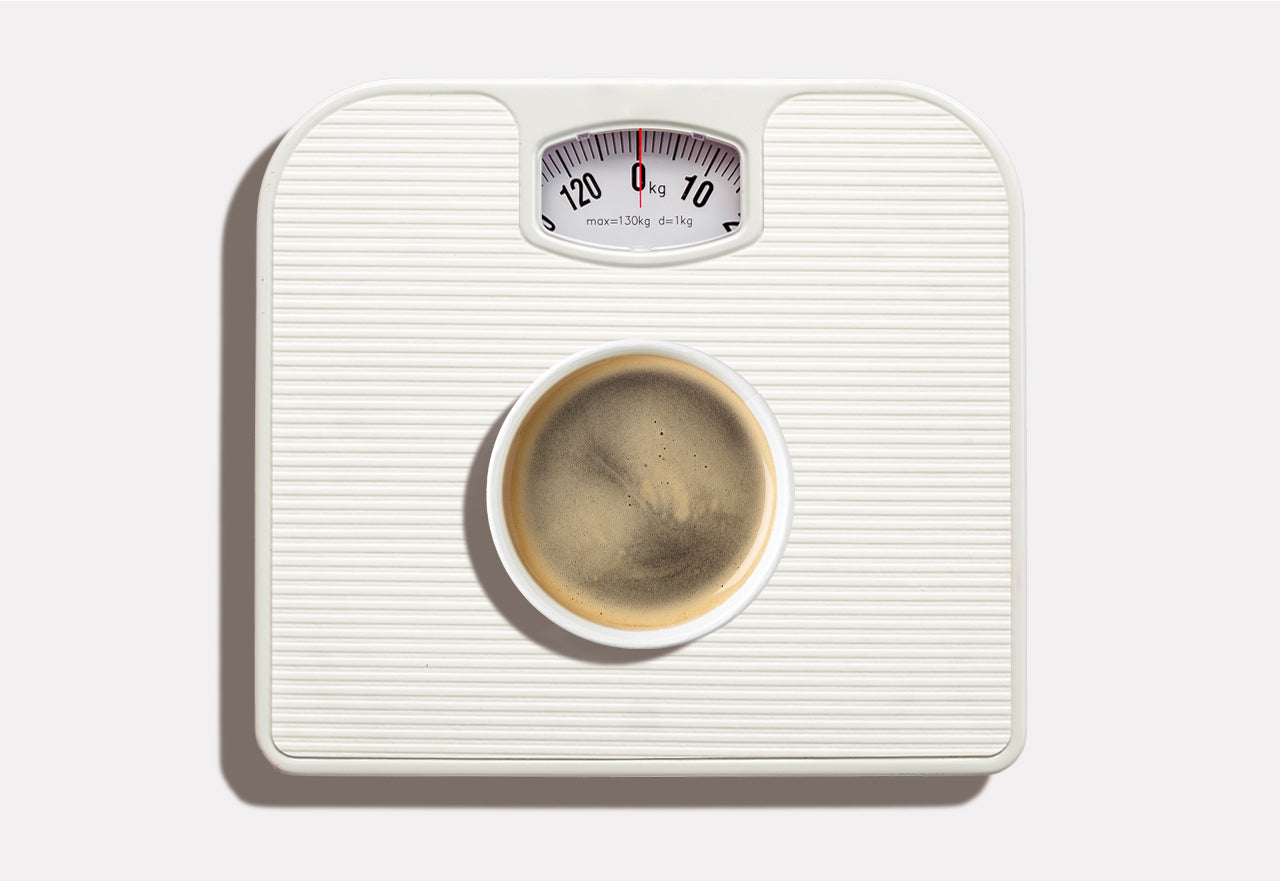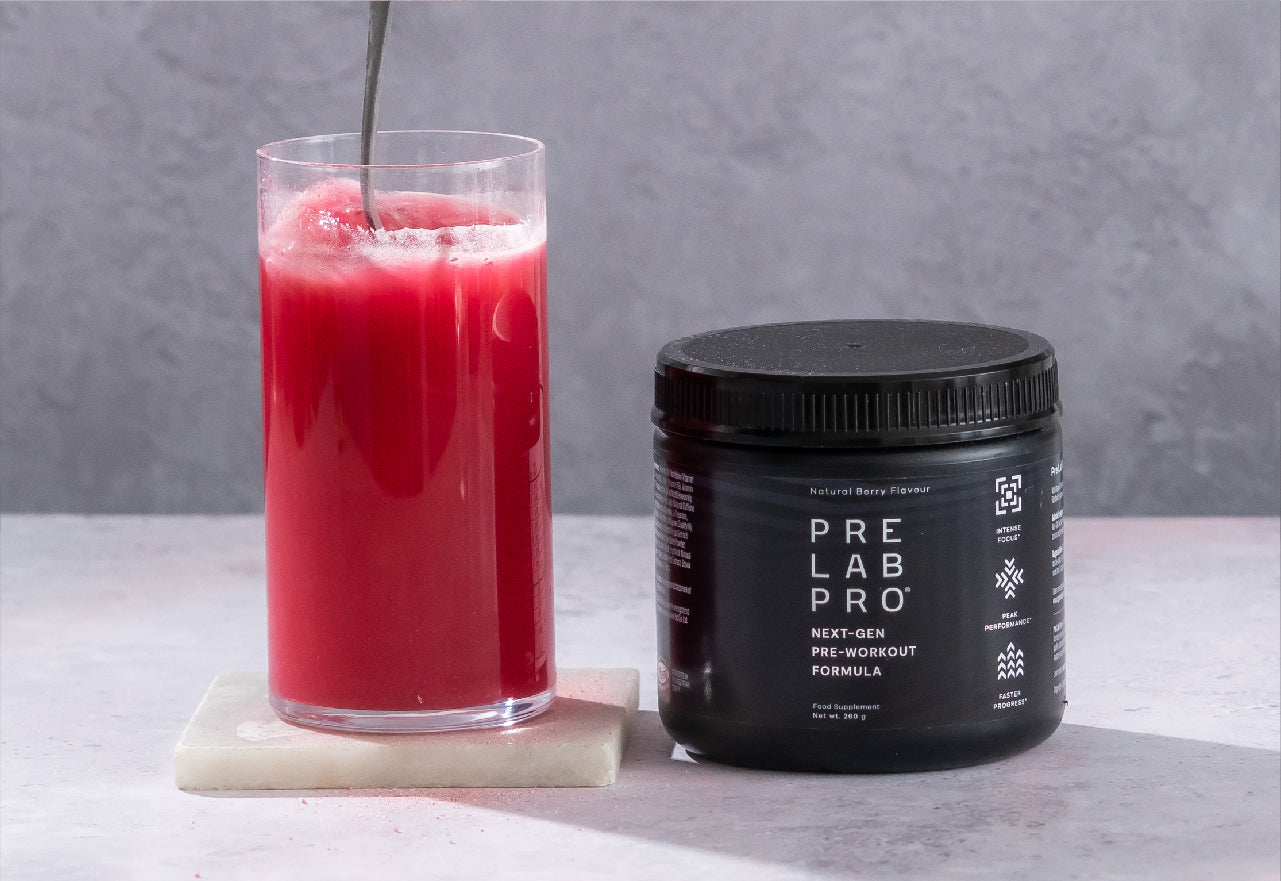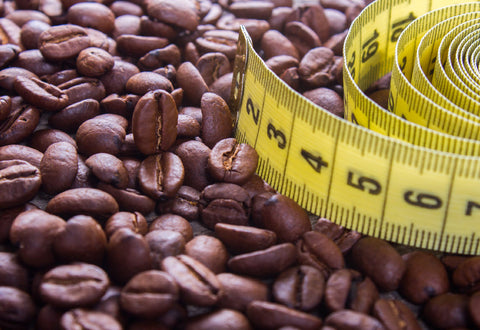Many of us are familiar with caffeine's stimulating effects and drink it daily in our coffee drinks and teas for a little pick-me-up. But we often sit there sipping on our morning brew without considering how coffee affects our bodies -- including our weight.
So does coffee make you gain weight? The effects of various coffee beverages on weight are mixed. Under certain circumstances, drinking coffee may lead to weight gain and an increase in belly fat. But if consumed sensibly, a coffee drink may actually help with weight loss.
Continue reading to discover how drinking coffee may have numerous effects on weight gain, metabolism, fat burning and other aspects of body weight management.
Our Favorite Energy Boost
Caffeine is a natural compound found in plant products like tea and black coffee. It has powerful stimulant effects on the central nervous system, heart, muscles, and centers that control blood pressure, making us feel more alert, energetic, and focused.
People drink coffee for many different reasons. To help them wake up, stay alert, improve exercise performance, increase productivity, sharpen the mind, lose weight, or any other activity that would benefit from an extra energy boost.
As a result of all these benefits, caffeine consumption is remarkably widespread: Up to 80% of the world population drinking coffee or consuming some other type of caffeinated product every day.(1)
Coffee and Weight Gain
We love drinking coffee. But does caffeinated coffee cause weight gain? Under some circumstances -- namely, excessive caffeine and excessive caloric intake from coffee drinks -- you can indeed experience weight gain from coffee and an unhealthy, calorie surplus diet.
Let's take a look at how too much coffee can contribute to gaining weight.
Calorie excess
Sugar content is the major contributor to excess calories in a modern coffee drink. Adding sugar to a cup of coffee imparts sweet taste. But even just sugar can neutralize caffeine's weight loss benefits.
Now factor in other coffee drink-related sources of potential weight gain:
- milks from dairy, coconut milk, other plant-based and artificial creamers
- flavored creamers and syrups
- other high-calorie additives and toppers; whipped cream, chocolate syrup drizzles, etc.
- Coconut oil or butter ("bulletproof" coffee)

An extra large iced caramel macchiato from a popular coffee chain supplies 350 calories per serving with almost 50 grams of sugar.
To put it mildly, sugary coffee drinks often have a lot of calories, very little real nutrition, and are sometimes consumed as a meal replacement. It's a magic formula for weight gain.
Additionally, sugary additives and high-calorie creamers in coffee can further contribute to calorie intake and encourage weight gain.
Blood sugar disruptions
Loading up your coffee or green tea with added sugar can lead to immediate blood sugar spikes and ongoing issues with sugar cravings, both of which may cause weight gain. But as it turns out, even artificial sweeteners may skew blood sugar levels.(2)
So, best to consider limiting added sugars and artificial sweeteners to your plain coffee and keep away from the overwhelmingly sweet coffee beverages at your favorite coffee shop. Your blood sugar will be more stable, and you'll be less prone to sugar cravings that make it harder to lose weight.
Stress Hormones
If you are a coffee drinker, you should know that the caffeine in coffee can raise levels of a stress hormone called cortisol.(3)
Heightened cortisol levels in turn increase your body's ability for fat storage, particularly when it comes to adding on belly fat and extra weight around the abdominal area.(4)
Sleep problems

Coffee's caffeine content can really keep you up at night. Especially if used as an afternoon pick me up. And that's before the added sugar. Poor sleep can lead to overeating and hinder metabolism, making it easier for you to pack on pounds and harder for you to burn them off.(5)
Sleep is essential for the body to restore itself, and not enough of it can have numerous adverse effects on your body and health. Multiple studies have found a link between poor sleep quality and sleep deprivation and increased weight gain, appetite, and unhealthy cravings.
Read about the best sleep supplements here
Coffee and Weight Loss
Consuming caffeine itself is very low in calories, so it will not make healthy adults gain weight. On the contrary - a black coffee, with no added sugar or other additional ingredients, can actually increase fat burning and promote healthy weight loss. Let's take a look at why.
Metabolic impact for healthy weight management
By acting as a stimulant, caffeine can improve your metabolism and increase the number of calories your body burns a day. When your metabolism is revved up, you can burn fat without you even having to lift a finger. One study found that 410 mg of caffeine per kilogram of body weight increased metabolism by 13%.(6) While another study found that people who regularly consumed coffee and caffeine were more successful at achieving and maintaining weight loss.(7)

Appetite control for weight loss efforts
As well as boosting your metabolism, caffeine may also promote weight loss by suppressing the production of the hunger hormone ghrelin.(8)
Research suggests that by acting as an appetite suppressant, caffeine may help reduce the total number of calories consumed throughout the day.
Black coffee, with minimal calories, can be a satisfying and low-calorie beverage choice that helps you maintain a calorie deficit, while also helping you to perform on an empty stomach.
Exercise performance
Moreover, caffeine acts as a straight-up physical performance enhancer, encouraging more calorie expenditure during exercise.(9) In other words, a cup of coffee can help you achieve greater workout intensity, so you burn off more fat.
Best Source of Caffeine For Weight Management
If daily coffee drinks with added sugar and extra calories raise risk for weight gain, consider a different vehicle for increasing caffeine intake: The caffeine pill.
When considering coffee vs caffeine pills, you may conclude that a daily caffeine supplement is a quicker, easier and more reliable way to acquire that jolt of energy and all the health benefits you are seeking without making you gain weight.
How much coffee is risky for weight? Hitting up coffee shops daily will expose you to sugary beverages, high calorie beverages, and unnecessary sweat treats that skew your blood sugar and put you on the express train to weight gain.
In addition, coffee isn't always the greatest on an empty stomach, for those who are cutting calories. For similar reasons, coffee before a workout is sometimes discouraged -- nobody wants gastric distress in the middle of a workout.
Caffeine pills deliver all of caffeine's health benefits, including for fat loss, without the calories, expense, or gastric distress of daily coffee drinks.
Moreover, the best caffeine pill on the market -- which we will get to in one moment -- elevates the caffeine experience to something calmer, cleaner and more effective than ever before.
Best Caffeine Pill to Help You Lose Weight: Performance Lab Caffeine+

Performance Lab® Caffeine+ is a "smart caffeine pill", carefully formulated with the following ingredients:
- Natural & pure Caffeine, 50 mg
- Suntheanine® L-Theanine, 100 mg
- Ajipure® L-Tyrosine, 250 mg
- NutriGenesis® Caffeine Balance B-Complex
Performance Lab® Caffeine+ is a cleaner take on caffeine, different from megadose synthetic energy drinks and sugar-laden coffee. It is enhanced caffeine, made for:
- Peak nootropic (brain boosting), athletic and fat burning performance
- Precise dosing: 50 mg caffeine per capsule, ideal for customizing intake for best fat loss results
- Fewer side effects, thanks to L-Theanine, a calming amino acid from green tea
- Helps reduce jitters, crashes and other negative effects of caffeine overstimulation
- Supercharged caffeine focus: Mental alertness and peak performance during multitasking & stress
Performance Lab® Caffeine+ is the best caffeine supplement on the market today.
Get the Best Performance Lab® Caffeine+ Deal HereBest Pre-Workout with Caffeine for Weight Loss: Pre Lab Pro®

As effective as Caffeine+ is, there is one supplement that is even better for working out, specifically. That supplement is Pre Lab Pro®, which supplies sports-tuned caffeine within a sports-nutrition formula.
- Natural caffeine — Carefully dosed caffeine combined with boosters and balancers like Suntheanine® L-Theanine, Ajipure® L-Tyrosine, and NutriGenesis® B-Vitamins.
- RedNite® Beetroot Powder — Helps boost energy levels, healthy cardio performance, and sharper cognitive function through any workout
- Setria® Performance Blend — Provides a strong, sustained nitric oxide boost for improved strength, power, speed, and endurance plus a faster start on muscle growth and recovery
Pre Lab Pro boosts athletic, nootropic (cognitive), and thermogenic performance. This pre-workout supplement is not just for muscles, but also for mental intensity you seek and effective fat burning.
Get the Best Pre Lab Pro® Deal NowBest Coffee Complement: Performance Lab® MCT Oil

If you need a creamer when you drink coffee, consider ditching the sugary synthetic stuff for some clean MCT oil. It is sourced from coconuts, and while high in calories, it lends creamy texture and big fat loss benefits when added to coffee.
Performance Lab® MCT Oil is the best brand on the market for adding to your daily cup of coffee. It supplies medium-chain triglycerides Caprylic Acid (C8) and Capric Acid (C10) sourced from 100% Organic, Non-GMO Coconuts. It delivers:
- Fast-acting fuel for cognitive and metabolic performance
- Promotes vitality during high-intensity and fasted training
- Enhances fat burning across all weight programs
Performance Lab® MCT Oil is the cleanest and healthiest MCT oil brand on the market. More potent, effective and easier to digest than coconut oil. Clean, pure, triple-filtered: Highest quality on market.
Get the Best Performance Lab® MCT Deal NowConclusion
Caffeinated coffee is a popular drink that a large percentage of the world's population consumes daily to improve alertness, energy, and performance. But caffeine can have numerous effects on your weight, depending on how it is consumed.
If you've got a coffee habit, you should know that as a stand-alone substance in plain black coffee, caffeine will not lead to weight gain, as it contains very few calories.
In certain coffee drinks, however, caffeine is consumed in sweetened, fatty beverages. They can increase your overall daily sugar intake and calorie intake, which may lead to weight gain.
Limiting added sugar in these coffee drinks can help. But a caffeine supplement is the easiest, quickest, and least harmful to your weight yet still provides all the benefits of your much-loved coffee.
References
- 1. Samoggia A, Rezzaghi T. The Consumption of Caffeine-Containing Products to Enhance Sports Performance: An Application of an Extended Model of the Theory of Planned Behavior. Nutrients. 2021 Jan 24;13(2):344. doi: 10.3390/nu13020344. PMID: 33498924; PMCID: PMC7912121.
- 2. Mathur K, Agrawal RK, Nagpure S, Deshpande D. Effect of artificial sweeteners on insulin resistance among type-2 diabetes mellitus patients. J Family Med Prim Care. 2020 Jan 28;9(1):69-71. doi: 10.4103/jfmpc.jfmpc_329_19. PMID: 32110567; PMCID: PMC7014832.
- 3. Lovallo WR, Farag NH, Vincent AS, Thomas TL, Wilson MF. Cortisol responses to mental stress, exercise, and meals following caffeine intake in men and women. Pharmacol Biochem Behav. 2006 Mar;83(3):441-7. doi: 10.1016/j.pbb.2006.03.005. Epub 2006 May 2. PMID: 16631247; PMCID: PMC2249754.
- 4. Hewagalamulage SD, Lee TK, Clarke IJ, Henry BA. Stress, cortisol, and obesity: a role for cortisol responsiveness in identifying individuals prone to obesity. Domest Anim Endocrinol. 2016 Jul;56 Suppl:S112-20. doi: 10.1016/j.domaniend.2016.03.004. Epub 2016 Mar 31. PMID: 27345309.
- 5. Ding C, Lim LL, Xu L, Kong APS. Sleep and Obesity. J Obes Metab Syndr. 2018 Mar 30;27(1):4-24. doi: 10.7570/jomes.2018.27.1.4. PMID: 31089536; PMCID: PMC6489488.
- 6. Acheson, Kevin J., et al. Metabolic effects of caffeine in humans: lipid oxidation or futile cycling? The American journal of clinical nutrition 79.1 (2004): 40-46.
- 7. Icken, Dina, et al. Caffeine intake is related to successful weight loss maintenance. European journal of clinical nutrition70.4 (2016): 532-534.
- 8. Bakuradze T, et al. Four-week coffee consumption affects energy intake, satiety regulation, body fat, and protects DNA integrity. Food Research International. 63. 420-427. 10.1016/j.foodres.2014.05.032.
- 9. Jodra P, Lago-Rodríguez A, Sánchez-Oliver AJ, López-Samanes A, Pérez-López A, Veiga-Herreros P, San Juan AF, Domínguez R. Effects of caffeine supplementation on physical performance and mood dimensions in elite and trained-recreational athletes. J Int Soc Sports Nutr. 2020 Jan 3;17(1):2. doi: 10.1186/s12970-019-0332-5. PMID: 31900166; PMCID: PMC6942320.











